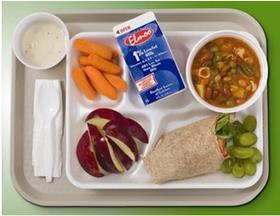
Freshfel Europe has revealed that it has sent a letter to the EU commissioner for agriculture, Dacian Ciolos, questioning the appropriateness and timing of the EC consultation on the Common Agricultural Policy (CAP) schemes providing agricultural products to school children.
The association said that it has expressed 'serious concerns' with regards to the policy options envisaged in the consultation, which it thought would be 'extremely detrimental' for the School Fruit Scheme (SFS).
Freshfel Europe – together with Aprifel, Areflh and Epha (the European Public Health Alliance) – has addressed a letter to Commissioner Ciolos on the public consultation on CAP schemes for milk and fruit distribution in schools, which outlines several options now open for debate.
The organisation started by questioning the timing of the consultation, (which is open until 22 April) and suggested postponing it until the SFS improvements under the CAP reform - meaning an increased budget to enhance accompanying measures and raise the level of the co-financing – are introduced, consolidated and monitored, and the planned evaluation for the School Milk Scheme (due after the summer) is finalised.
'Considering a greater integration of these schemes or even widening further the scope of the products would hinder any consensual communication efforts and will put into question the high level of health protection to children, one of the primary objectives of the SFS,' explained Saida Barnat, scientific director of Aprifel and a member of the EU SFS Group of experts.
Quoting the vice-president of the group, Margherita Caroli, she added: 'no other agricultural product besides fruit and vegetables, is scientifically justified for further promotion to children at schools.'
The letter also highlights the specificity of the products and the logistics of the two schemes, which widely differ and for which a merger would be to the detriment of the need for frequent distribution of perishable products.
Freshfel further observes that while all the objectives mentioned in the consultation paper – including the disconnection of consumers and children with agriculture, the increased globalisation and modern way of life, the consumption of highly processed foods high in sugar and fat and the fight against obesity and overweight – are laudable objectives, they should not be part of a school programme, and can be reached through other CAP instruments.
'In a time of budgetary constraints, it is important to have well-structured, well-funded and efficient policies, and we urge the Commission to first further improve the SFS without jeopardising its achievements so far,' said Philippe Binard, general delegate of Freshfel.
'When launched, the SFS was built on the basis of increasing fruit and vegetables consumption together with a clear health objective,' he added. 'Its merits are more than ever valid today and should not be undermined.'



